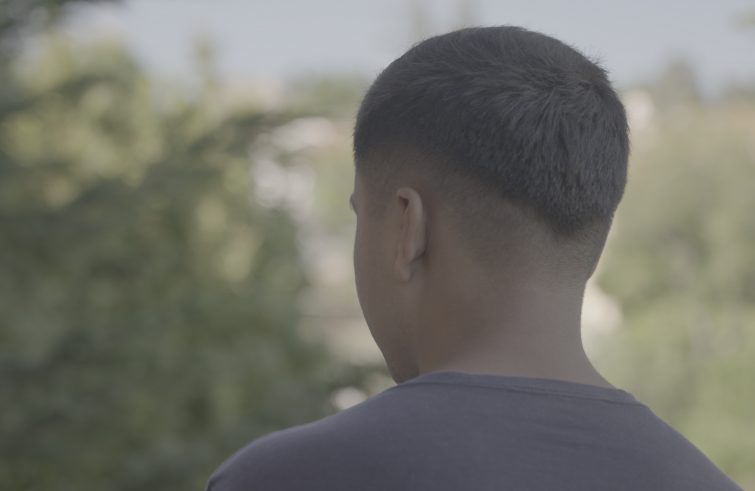
14-year-old Anastasya fled the war in Ukraine with her mother and her 11-year-old sister. Upon arrival in Trieste, at the Fernetti border crossing, solidarity and hospitality flooded in for her. She can now travel freely across Europe thanks to a temporary protection scheme granted to Ukrainians. Also Ghulam is 14 years old, but he fled from Afghanistan, from an equally harrowing and difficult situation. He arrived at the same border after a 260-km walk lasting eight days, from the Bosnia Herzegovina-Croatia border, after a months-long dangerous journey. He was found by the Italian military at the Slovenian side of the Karst forest and was brought to a refugee reception centre. The procedure for obtaining humanitarian protection will be much longer and complex for him. Should he decide to travel across Europe to join family or friends, he would risk plunging back into a situation of irregularity and invisibility. A Report released today by Save the Children, entitled “Hidden in plain sight”, highlights the unequal treatment of migrant children, documenting the stories of unaccompanied minors and of families arriving or in transit at Italy’s northern border, in Trieste, Ventimiglia and Oulx. The Report denounces the abuse and violations of human rights to which many minors are subjected at border crossings, revealing a two-faced Europe: one that is good and supportive of Ukrainian refugees, and one that is rejecting all others. “In a dramatically changed world scenario, Europe and its member states have shown that they can extend open arms and open doors to persons fleeing the war in Ukraine. Yet at the same time, they have proved to be brutal and prepared to make unjustified use of force against defenseless people whose only fault is not having valid entry documents, but who are equally in need of a safe haven,” Save the Children denounced.
Thirty five minors refused entry at the EU borders in the first 3 months of 2022. During the first 3 months of 2022, over 35 unaccompanied foreign minors were turned back at EU’s external borders, which is just the tip of an invisible iceberg. Suffice it to mention that in April alone, 38 unaccompanied minors were reported in transit in Trieste, 24 in transit in Ventimiglia and 35 in Oulx.
This influx is increasing steadily with the summer season. In May 60 unaccompanied minors were identified in Trieste , 47 in the city of Ventimiglia, and as many as 150 in Oulx. Most of them are Afghani children.
They arrived both via the so-called ‘Balkan route’ and from across the Mediterranean Sea. Some were subjected to physical violence, humiliation and beatings by the border police. Others faced a worse fate, like an unidentified African child who drowned in a river near the Croatian border.
The Italian-French border remains one of the least welcoming places for a migrant. Organisations trying to support them with at least basic necessities (meals and clothing) include Caritas Intemelia, the Waldensian Diaconia, WeWorld and Save the Children. Some days, France sends back several dozen people, sometimes more than 100. On 6 May alone, the search team witnessed at least 30 people return on foot from the border crossing at Ponte San Luigi. They were rudely turned back. Since they cannot enter through official routes, the migrants fall prey to traffickers, who suggest them to take the least controlled trains, organise their journey on foot along the Passo della Morte, via taxis along narrow mountain tracks or hidden in vans. Tragic accidents often occur, like the case of two Sri Lankan nationals run over by a truck in April or two people who died of electrocution on top of a train travelling from Ventimiglia to Menton last January and March. In Menton, reports document that the police continue the practice of altering a person’s date of birth to make him or her appear to be of age and eventually applying a Denial of Entry (refus d’entrée).
In Oulx, in the Italian Piedmont region, 530 people were sent back from France in May, almost 17 a day, a figure that continues to rise.
As of April 2022, there were 14,025 unaccompanied foreign minors in Italian reception facilities, according to figures from the Ministry of Labour and Social Affairs, 16.3 per cent of whom were girls, almost 70 per cent were aged 16 to 17 and over 22% were under 14. As far as nationalities are concerned,
this year, Ukrainians rank first (3,906, representing 27.9% of all refugees, nearly all of whom are hosted by relatives or foster families), migrants from Egypt are the second largest group ( 16.6%), followed by Bengalis, Albanians, Tunisians, Pakistanis and migrants from Côte d’Ivoire.
Afghans numbered 306 or 2.6%, reflecting their intention to reach other countries in Europe. As many as 1,897 unaccompanied minors entered Italy in April – only 272 of them arriving at the southern border and the remaining 1,625 via the land border – most of them Ukrainians (1,332, representing 70.2%), Egyptians (169, or 8.9%), and Afghans (71, or 3.7%). The regions welcoming the highest numbers of refugees were Lombardy (19.6%), Sicily (18%) and Emilia-Romagna (8.8%).
 Appeal to the EU to “protect all minors.” Save the Children is asking the European Commission “to adopt a Recommendation to Member States for the adoption and implementation of policies aimed at ensuring the full protection of unaccompanied minors at the external and internal borders of Europe and on the territories of the Member States”. Moreover, it calls on European governments “to refrain from using practices that erroneously distinguish between categories of refugees – says Raffaela Milano, director of Save the Children’s Italy-Europe Programmes,
Appeal to the EU to “protect all minors.” Save the Children is asking the European Commission “to adopt a Recommendation to Member States for the adoption and implementation of policies aimed at ensuring the full protection of unaccompanied minors at the external and internal borders of Europe and on the territories of the Member States”. Moreover, it calls on European governments “to refrain from using practices that erroneously distinguish between categories of refugees – says Raffaela Milano, director of Save the Children’s Italy-Europe Programmes,
– respecting international law and the principle of non-refoulement, allowing access to all asylum seekers, and
extending the good practices established for Ukrainian refugees to all asylum seekers,
including them in the debates on the approval or revision of the Asylum and Migration Pact measures. Finally, we deem it essential to adopt border monitoring systems, which would also enable the criminal prosecution of instances of human rights violations.”











